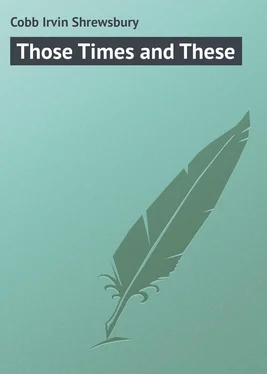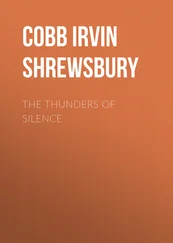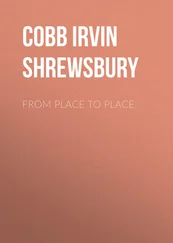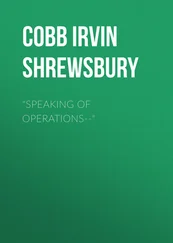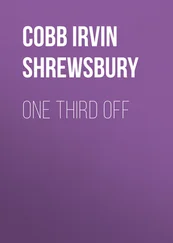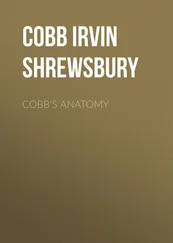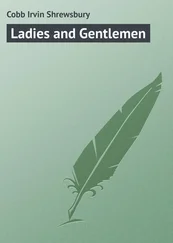Irvin Cobb - Those Times and These
Здесь есть возможность читать онлайн «Irvin Cobb - Those Times and These» — ознакомительный отрывок электронной книги совершенно бесплатно, а после прочтения отрывка купить полную версию. В некоторых случаях можно слушать аудио, скачать через торрент в формате fb2 и присутствует краткое содержание. Жанр: foreign_prose, на английском языке. Описание произведения, (предисловие) а так же отзывы посетителей доступны на портале библиотеки ЛибКат.
- Название:Those Times and These
- Автор:
- Жанр:
- Год:неизвестен
- ISBN:нет данных
- Рейтинг книги:4 / 5. Голосов: 1
-
Избранное:Добавить в избранное
- Отзывы:
-
Ваша оценка:
- 80
- 1
- 2
- 3
- 4
- 5
Those Times and These: краткое содержание, описание и аннотация
Предлагаем к чтению аннотацию, описание, краткое содержание или предисловие (зависит от того, что написал сам автор книги «Those Times and These»). Если вы не нашли необходимую информацию о книге — напишите в комментариях, мы постараемся отыскать её.
Those Times and These — читать онлайн ознакомительный отрывок
Ниже представлен текст книги, разбитый по страницам. Система сохранения места последней прочитанной страницы, позволяет с удобством читать онлайн бесплатно книгу «Those Times and These», без необходимости каждый раз заново искать на чём Вы остановились. Поставьте закладку, и сможете в любой момент перейти на страницу, на которой закончили чтение.
Интервал:
Закладка:
“Friends? I have no friends. I can’t get on with any one – I quarrel with every one. I know I am sick, that I am irritable and out-of-sorts sometimes. And I know that I am self-willed and want my own way. But I’ve always been self-willed; it’s a part of my nature. And I’ve always had my own way. They should appreciate that. But they don’t. They cross me. At every turn somebody crosses me. The whole world seems in a conspiracy to deny me what I want.
“It can’t be my fault always that I am forever quarrelling with people – with my own family; with my husband’s family; with every one who crosses my path. I tell you they don’t understand me, doctor. They don’t make allowances for my condition. If they would only make allowances! And they don’t give me any consideration. I can’t stand it, doctor! I can’t go on like this any longer. Please – please, doctor, do something for me!”
Mounting hysteria edged her voice with a sharpened, almost a vulgar shrillness. The austere and studied reserve of her class – a reserve that is part of it poise and the rest of it pose – dropped away from her like a discarded garment, and before her physician she revealed herself nakedly for what she was – a creature with the passions, the forwardness and the selfishness of a spoiled and sickly child; and, on top of these, superimposed and piled up, adult impulses, adult appetites, adult petulance, adult capacity for misery.
“I told you,” he said, “to go away. I thought, until my man brought me your name a bit ago, that you had gone. Weeks ago I told you that travel might help you – not the sort of travel to which you have been used, but a different sort – travel in the quiet places, out of the beaten path, and rest. I told you the same thing again less than a week ago.”
“But where?” she demanded. “Where am I to go? Tell me that! I have been everywhere – I have seen everything. What is there left for me to see in the world? What is there in the world that is worth seeing? You told me before there was nothing organically wrong with me, nothing fundamentally wrong with my body. Then it must be my mind, and travel couldn’t cure a mind in the state that mine is in. How can I rest when I am so distracted, when small things upset me so, when – ”
In the midst of this new outburst she broke off. Her eyes, wandering from his as she pumped herself up toward a frenzy, were focused now upon some object behind him. She pointed toward it.
“I never saw that before,” she said. “It wasn’t there when I was here last.”
He swung about in his chair, its spiral creaking under his weight.
“No,” he said; “you never saw that before. It came into my possession only a day or two ago. It is a – ”
She broke in on him.
“What a wonderful face!” she said. “What beauty there is in it – what peace! I think that is what made me notice it – the peace that is in it. Oh, if I could only be like that! Doctor, the being to whom that face belonged must have had everything worth having. And to think there can be such beings in this world – beings so blessed, so happy – while I – I – ”
Tears of self-pity came into her eyes. She was slipping back again into her former mood. With his gaze he caught and held hers, exerting all his will to hold it. A brother psychologist seeing him in that moment would have said that to this man a possible way out of a dilemma had come – would have said that an inspiration suddenly had visited him.
“Perhaps you would like to see it at closer range,” he said, still steadfastly regarding her. “There is a story regarding it – a story that might interest you, madam.”
He rose from his place, crossed the room and, reaching up, took down a plaster cast of a face that rested upright against the broad low moulding that ran along his walls on two sides.
As he brought it to her he saw that she had taken a chair. Her figure was relaxed from its recent rigidness. Her elbows were upon the tabletop. He put the cast into her gloved hands and reseated himself. She held it before her at arm’s length, and one gloved hand went over its surface almost caressingly.
“It is wonderful!” she said. “I never saw such an expression on any human face – why, it is soothing to me just to look at it. Doctor, where did you get it? Who was the original of it – or don’t you know? What living creature sat for the artist who made it?”
“No living creature sat for it,” he said slowly.
“Oh!” she said disappointedly. “Well, then, what artist had the imagination to conjure up such a conception?”
“No artist conjured it up,” he told her.
“Then how-”
“That, madam,” he said, “is a death mask.”
“A death mask!” Her tone was incredulous. “A death mask, doctor?”
“Yes, madam – a death mask. See, the eyes are closed – are half closed, anyway.”
“Do you mean to tell me that death can leave such an expression on any face? How could – ”
She broke off, staring incredulously at the thing.
“That is what makes the story I mean to tell you,” he said – “if you care to hear it?”
“Of course I want to hear it.” Her manner was insistent, impatient, demanding almost. “Please go on.”
He kept her in suspense a moment or two; and so they both sat, he squinting up at the ceiling as though marshalling a narrative in its proper sequence in his mind, she holding fast to the disked shape of white plaster. At length he began, speaking slowly.
“Here is the story,” he said: “A few weeks ago an acquaintance of mine – a fellow physician – told me of a case he thought might interest me. Primarily it was a surgical case, and I, as perhaps you know, do not practise surgery; but there was another aspect of it that did have a direct and personal appeal for me.
“It seems that some weeks before there had been put into his hands for treatment a man – a young man – who was stone-deaf and stone-blind, and whose senses of taste and of smell were greatly affected – perhaps I should say impaired. He could speak, more or less imperfectly, and his sense of touch was good; in fact, better than with ordinary mortals. These two faculties alone remained to him. He had been afflicted so from childhood; the attack, or the disease, which left him in this state had come upon him very early, before his mind had registered very many sensible impressions.
“Speech and feeling – these really were what remained intact. Yet his intelligence, considering these handicaps, was above the average, and his body was healthy, and his temperament, in the main, sanguine. Practically all his life he had been in an asylum – a charity institution. Until chance brought him to the attention of this acquaintance of mine it had seemed highly probable that he would spend the rest of his life in this institution.
“The physicians there regarded his case as hopeless. They were conscientious men – these physicians – and they were not lacking in sympathy, I think; but their hands and their thoughts were concerned with their duties, and perhaps – mind you, I say perhaps – perhaps an individual case more or less did not mean to them what it means to the physician in private practice. You understand? So this young man, who was well formed physically, who was normal in his mental aspects, seemed to be doomed to serve a life sentence inside walls of utter darkness and utter silence.
“Well, this man came under the attention of the surgeon I have mentioned. Possibly because it seemed so hopeless, the case interested the surgeon. He made up his mind that the affliction – afflictions rather – were not congenital, not incurable. He made up his mind that a tumorous growth on the brain was responsible for the present state of the victim. And he made up his mind that an operation – a delicate and a risky and a difficult operation – might bring about a cure. If the operation failed the subject would pass from the silence and the blackness he now endured into a silence and a blackness which many of us, similarly placed, would find preferable. He would die – quickly and painlessly. If the operation succeeded he probably would have back all his faculties – he would begin really to live. The surgeon was willing to take the chance, to assume the responsibility.
Читать дальшеИнтервал:
Закладка:
Похожие книги на «Those Times and These»
Представляем Вашему вниманию похожие книги на «Those Times and These» списком для выбора. Мы отобрали схожую по названию и смыслу литературу в надежде предоставить читателям больше вариантов отыскать новые, интересные, ещё непрочитанные произведения.
Обсуждение, отзывы о книге «Those Times and These» и просто собственные мнения читателей. Оставьте ваши комментарии, напишите, что Вы думаете о произведении, его смысле или главных героях. Укажите что конкретно понравилось, а что нет, и почему Вы так считаете.
